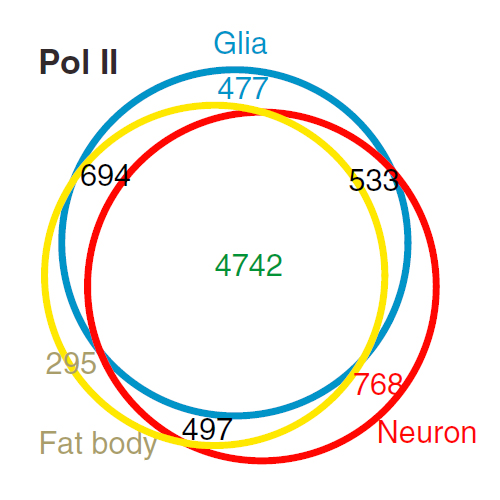CAST-ChIP Maps Cell-Type-Specific Chromatin States in the Drosophila Central Nervous System
03-Oct-2013
Cell, 2013, 10.1016/j.celrep.2013.09.001, Volume 5, Issue 1, 271-282 published on 03.10.2013
Cell, online article
Cell, online article
Chromatin organization and gene activity are responsive to developmental and environmental cues. Although many genes are transcribed throughout development and across cell types, much of gene regulation is highly cell-type specific. To readily track chromatin features at the resolution of cell types within complex tissues, we developed and validated chromatin affinity purification from specific cell types by chromatin immunoprecipitation (CAST-ChIP), a broadly applicable biochemical procedure. RNA polymerase II (Pol II) CAST-ChIP identifies ∼1,500 neuronal and glia-specific genes in differentiated cells within the adult Drosophila brain. In contrast, the histone H2A.Z is distributed similarly across cell types and throughout development, marking cell-type-invariant Pol II-bound regions. Our study identifies H2A.Z as an active chromatin signature that is refractory to changes across cell fates. Thus, CAST-ChIP powerfully identifies cell-type-specific as well as cell-type-invariant chromatin states, enabling the systematic dissection of chromatin structure and gene regulation within complex tissues such as the brain.











